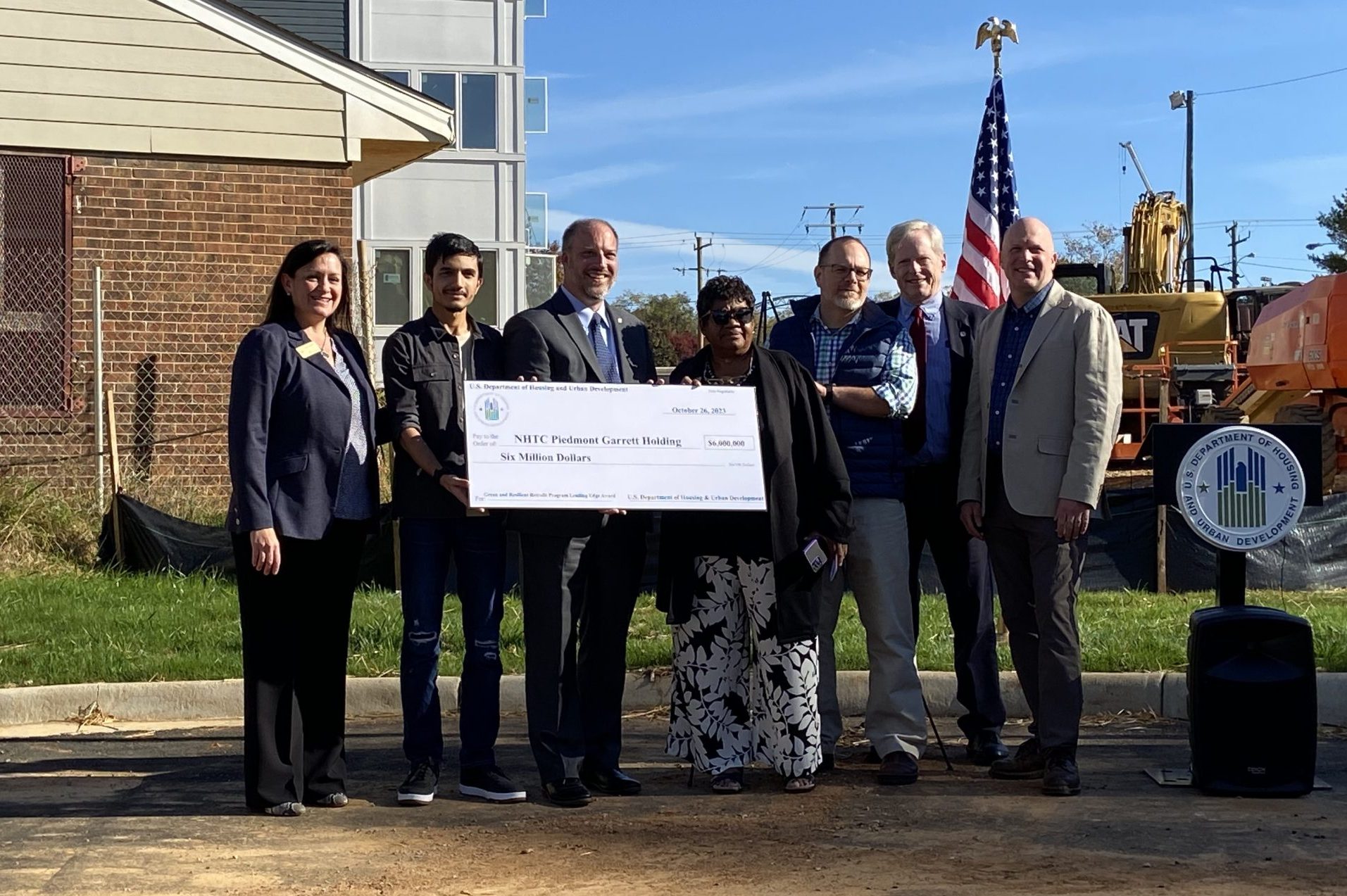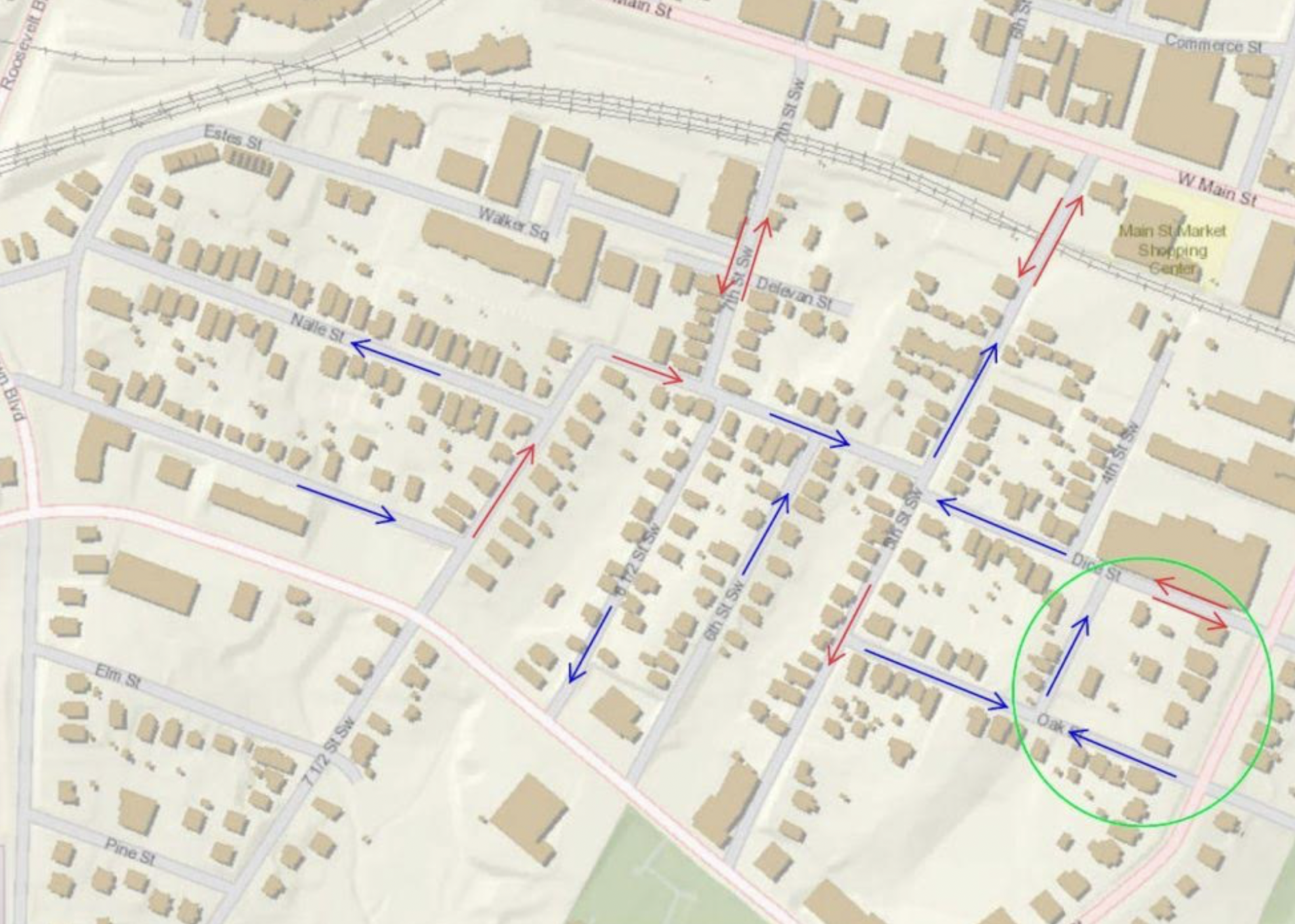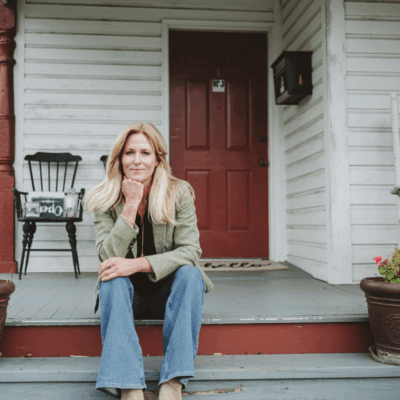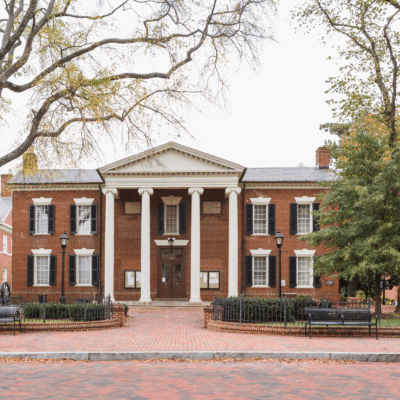Kindlewood residents and local affordable housing leaders are celebrating after a $6 million check was presented to the Piedmont Housing Alliance and National Housing Trust by the U.S. Department of Housing and Urban Development. The check closes a major funding gap in the Kindlewood redevelopment project, and will help cover the cost of solar installation and other energy-efficiency efforts in the neighborhood.
Presented to PHA and NHT on October 26, the large check was awarded as part of the Biden administration’s Green and Resilient Retrofit Program. Kindlewood is one of 16 properties to receive funding through the program, which aims to fund otherwise cost-prohibitive energy efficiency improvements in affordable housing communities.
Split into four phases, the redevelopment of Kindlewood is both resident led and zero displacement. People began moving into new buildings this summer, and once PHA has finished the move-in of phase-one residents (by December or January), it will begin demolition and construction for phase two.
“We have had a commitment to the residents to start construction of phase two, as soon as phase one was complete,” said Sunshine Mathon, executive director at Piedmont Housing Alliance, following the check presentation. “We had a remaining gap in the financing until this $6 million came through. This closes our gap and allows us to stay on track and hold that commitment to the residents.”
Solar panels will be installed across the Kindlewood community as part of the upcoming construction.
“This funding allows us not only to finish the goal on phase two funding, but to do so with a deep commitment to some of the most energy-efficient housing in the commonwealth,” said Mathon. “The roofs will be 100 percent covered in solar, and that will provide direct benefit directly to the residents.”
For community leaders and residents, the most exciting benefit of the project is the expected reduction in energy costs that comes with solar installation. “You can build housing, but if the cost of the housing utilities are high, you really haven’t accomplished that much,” says Myrtle Houchens, former resident and current member of the Kindlewood Advisory Committee. “This will really, really, really allow the sustainability of the housing piece, [through] low-cost, energy-efficient homes.”
Brooks Wellmon, director of development and communications for PHA, says Kindlewood’s focus on sustainability marks an important shift in the conversation around affordable housing.
“Often when we’re developing housing, affordable housing for low-income individuals, cost is the primary factor, and so things like environmental sustainability, efficiency, green features often fall to the wayside,” she says. “This program, this project, is really a model of how we can combine something that’s good for the planet, that saves our residents money, and is still in a safe, affordable housing development.
Phase two of construction at Kindlewood is expected to begin in early 2024. Plans for the housing development include early learning and community centers, the former of which will be open to all of Charlottesville. Other elements include the creation of an additional park, which will eventually be deeded to the city.





